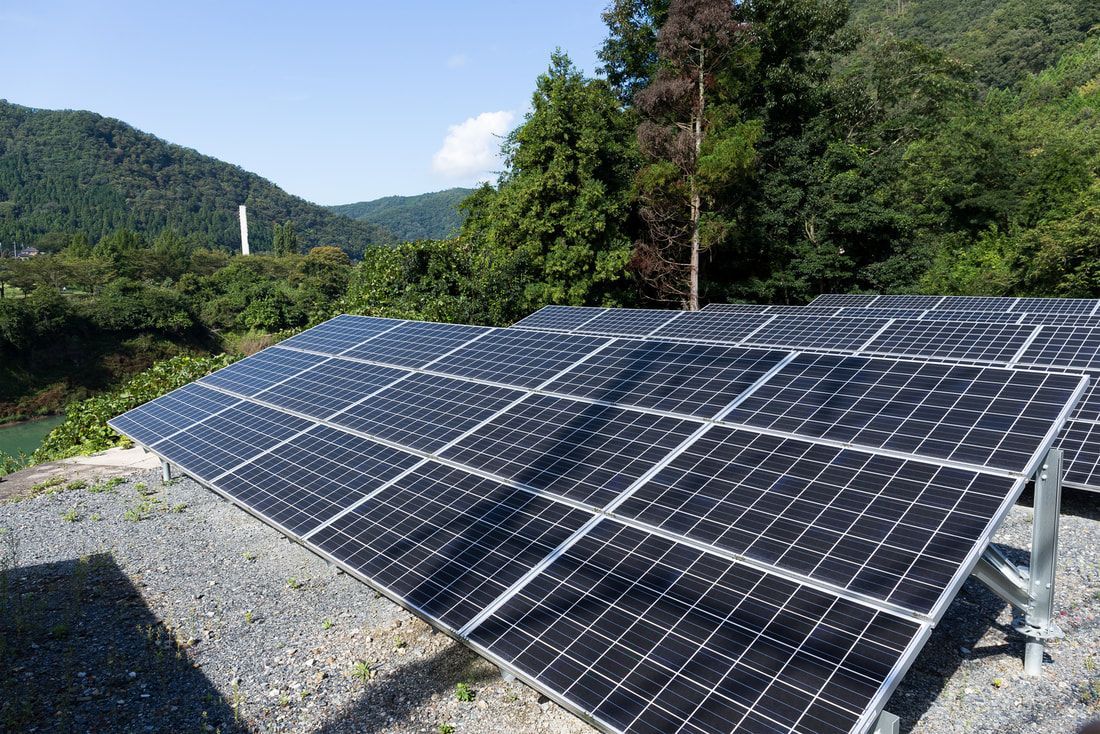How Solar Energy Works
Photovoltaic (PV) Cells and Solar Panels
The heart of a solar system is the photovoltaic (PV) cells. These cells are made up of semiconductor materials, typically silicon, which has the unique ability to convert sunlight directly into electricity through the photovoltaic effect. When sunlight strikes the PV cells, the photons in the light excite the electrons within the cells, generating an electric current. Multiple PV cells are connected together to form solar panels. These panels are then mounted on rooftops or ground-mounted in a location that receives ample sunlight throughout the day. The number and configuration of solar panels depend on the energy requirements of the property.
Inverter and Net Metering
The electricity generated by solar panels is in the form of direct current (DC), which is different from the alternating current (AC) used in most homes and businesses. To make the electricity compatible with your existing electrical system, an inverter is used. The inverter converts the DC electricity produced by the solar panels into AC electricity that can be used to power your appliances, lights, and other electrical devices. In a grid-connected solar system, excess electricity generated by the solar panels can be fed back into the utility grid. This process is known as net metering. A bi-directional meter measures the electricity flow, allowing you to receive credits for the excess electricity you generate. During periods when your solar system doesn't produce enough electricity, you can draw power from the grid, utilizing the credits you earned earlier. Net metering ensures that you have a constant and reliable source of electricity.
Battery Storage, Monitoring, and Control Systems
To further enhance your solar system, you can incorporate battery storage. Batteries store excess electricity generated during the day for later use, such as in the evening or in the event of a power outage. This allows you to maximize self-consumption of the energy you generate and further reduce reliance on the grid. Battery storage systems are particularly beneficial for achieving energy independence and providing backup power. To monitor the performance of your solar system, you can utilize advanced monitoring and control systems. These systems provide real-time data on electricity production, consumption, and overall system performance. You can access this information through mobile applications or web portals, empowering you to track energy generation, monitor savings, and optimize energy usage.
Maintenance and Support
Solar systems are designed to be low-maintenance, but regular inspections and maintenance are still necessary to ensure optimal performance. Our team at Los Angeles Solar Select provides comprehensive maintenance and support services, including panel cleaning, system inspection, and performance optimization. We are committed to ensuring that your solar system operates at its highest efficiency for years to come. Contact us today to schedule a consultation and discover how solar systems can transform your energy consumption.
FAQs
Your Questions Answered About How Solar Energy Works
How do solar panels generate electricity?
Solar panels use photovoltaic (PV) cells made of semiconductor materials to convert sunlight directly into electricity through the photovoltaic effect.
What is the role of an inverter in a solar system?
An inverter converts the direct current (DC) electricity produced by solar panels into alternating current (AC) electricity used in homes and businesses.
How does net metering work?
Net metering allows you to send excess electricity generated by your solar panels back to the grid, earning credits that you can use when your system produces less power.
What are the benefits of battery storage in a solar system?
Battery storage allows you to store excess energy for use during the evening or power outages, enhancing energy independence and providing backup power.
How is the performance of a solar system monitored?
Advanced monitoring and control systems provide real-time data on electricity production and consumption, allowing you to track and optimize your solar system's performance.



